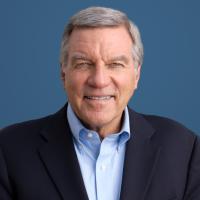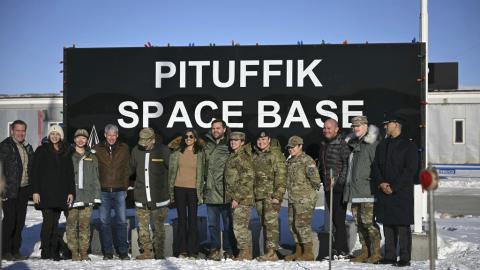Remembering the Holocaust While Resisting Modern Evil
As Israel commemorates Holocaust Remembrance Day, Holocaust survivors, former hostages held in Gaza, and top Israeli officials gathered at Yad Vashem, the national Holocaust memorial, to remember the worst genocide in history — the Nazi-led extermination of six million Jews.
As sirens wailed across the country, buses pulled over, cars stopped in the middle of highways, and pedestrians froze in place. Israelis stood still for two minutes, reflecting, remembering, and pledging never again.
The Holocaust touches nearly every family in Israel. Many lost parents, siblings, grandparents, or great-grandparents. The nation’s collective memory is etched with stories of unimaginable loss and survival.
The opening ceremony took place at Yad Vashem, Israel’s Holocaust memorial, where six Holocaust survivors lit six torches, one for each million Jewish lives who perished in the Holocaust.
This year’s solemn event also marks 80 years since the end of World War II and comes a year and a half after the October 7th massacre — the worst atrocity against the Jewish people since the Holocaust.
Israeli Prime Minister Benjamin Netanyahu addressed the ceremony with a resolute message, “Those who feared that after the October 7 massacre we would face another Holocaust, saw how we turned the tables. On this Holocaust Day, I promise: The military pressure on Hamas will continue. We will destroy all its capabilities. We will return all our hostages. We will defeat Hamas, and we will prevent Iran from obtaining nuclear weapons. To fight vigorously against the fanatical regimes that threaten the entire world, and to do so in a timely manner — this is the main lesson of the Holocaust.”
At the ceremony, Netanyahu reaffirmed why Israel will not allow Iran to develop nuclear weapons. “The extremist regime in Iran is a threat to the fate and existence, not only to our future, but to the fate and future of all human society. This is what will happen if it obtains nuclear weapons.”
Israel has suggested it will attack Iran’s nuclear facilities unless Iran voluntarily destroys those facilites. But it appears U.S. negotiators in talks with the Iranian regime are willing to allow the facilities to remain, enabling Iran to maintain a civil nuclear program.
U.S. Secretary of State Marco Rubio explained the U.S. position, “If Iran wants a civil nuclear program, they can have one, just like many other countries in the world have one; and that is, they import enriched material.”
Rubio stressed the issue centers on uranium enrichment, the key ingredient in a nuclear bomb. "There's a pathway to a civil, peaceful nuclear program if they want one. But if they insist on enriching, then they will be the only country in the world that doesn't have a weapons program but is enriching. And so I think that's problematic."
In the light of the Holocaust and the shadow of October 7th, it remains to be seen whether Israel will feel compelled to destroy what it considers an existential threat to its survival.
Watch the full Holocaust Remembrance Day 2025 Opening Ceremony at Yad Vashem.






